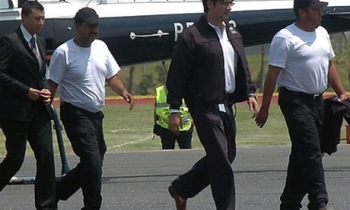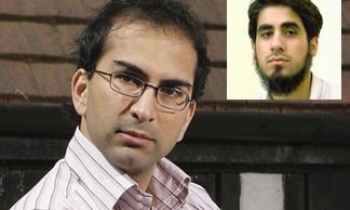Serious concerned have been raised about the constricting environment the government of Swaziland is imposing on freedom of expression. Under a Suppression of Terrorism Act that has been passed by the Parliament in May 2008, Swazi journalists, political activists and human rights defenders have apparently become persona non-grata, battered and/or arrested.
The Swaziland Act is the latest in a series of anti-terrorism laws that have been enacted since the September 2001 attacks on the World Trade Centre, says free speech group ARTICLE 19. Freedom of expression has been especially challenged by the adoption of these new laws which prohibit speech that is considered "extremist" or supporting of terrorism. Under the guise of the fight against terrorism, these new laws are used to suppress political and controversial speech.
As recently as September at the 40-40 celebration, the Monarch's 40th birthday and Swaziland's 40 years of independence, King Mswati III promised his people better governance for economic renewal. ARTICLE 19 asserts that the restriction of free expression and pro-democracy activities of human rights defenders will hinder genuine economic progress.
"Frankly, terrorism is a specious argument for repression of free expression in Swaziland. At issue in the recent crackdown are legitimate political grievances which, instead of being addressed through the democratic process, are demonized," says Agnes Callamard, executive director of ARTICLE 19. In recent weeks, political activities have been outlawed, marches and demonstrations have been banned, and television camera crews, journalists and political activists have been arrested on suspicion of making remarks in support of terrorism.
ARTICLE 19 strongly urges the government of Swaziland to reverse this course of action. Its resources would be much better used in strengthening democracy and the rule of law, and addressing Swaziland's significant social challenges, including poverty and HIV/AIDS.
"The serious imperative to fight terrorism and the use of violence against citizens must not be used as an excuse to repress dissent and undermine freedom of expression. On the contrary: the protection of human rights and freedom of expression are central to political and social change, democracy and development in Swaziland and anywhere else in the world," says Callamard.
ARTICLE 19 has noted with increasing concern the multiplication all over the world of restrictions on freedom of expression, or attempted restrictions, justified on the grounds of national security. These restrictions have included: the development of anti-terrorist laws, which are too often vague and overly broad, leaving them open to interpretation and potential abuses; the use of Official Secrets Acts to deny access to publicly held information, including information of vital public interest, such as whether or not Al Jazeera was considered as a potential military target during the recent Iraq war; etc.
All of these situations have one thing in common: the desire to bury or silence controversial voices that authorities deem to pose a potential threat to security, ARTICLE 19 asserts.








